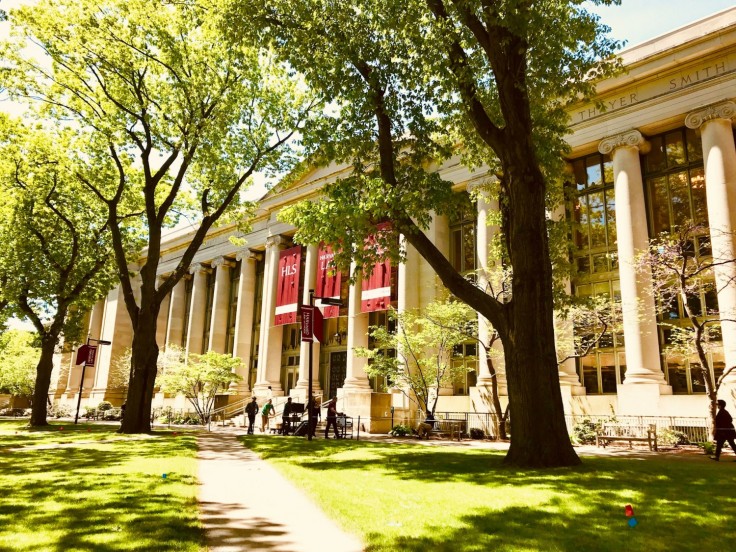Wife of Harvard Morgue Manager Pleads Guilty to Interstate Transport of Stolen Body Parts
ByIn a case that sent shockwaves through academia and beyond, the scandal surrounding the theft of body parts from Harvard Medical School's morgue has captured headlines and sparked widespread outrage.
The recent guilty plea of Denise Lodge, wife of the former morgue manager Cedric Lodge, has brought renewed attention to this disturbing chapter in Harvard's history. Let's delve deeper into the intricacies of the case.

The Allegations Unveiled
The saga began to unfold when federal prosecutors levied charges of conspiracy and interstate transport of stolen goods against Denise Lodge, her husband, Cedric Lodge, and five others allegedly involved in the illicit trade of human remains. The charges stemmed from a nefarious operation that saw body parts, including hands, feet, and even entire heads, being stolen from Harvard's morgue and a mortuary in Arkansas.
The modus operandi of the operation was as chilling as it was brazen. Online transactions, facilitated through platforms like PayPal, facilitated the exchange of these stolen body parts. Memos accompanying payments, such as "head number 7" and whimsical references to "brains," added a macabre twist to an already gruesome affair.
The Legal Fallout
Denise Lodge's guilty plea marks a significant development in the case's legal proceedings. However, one chapter in a complex legal saga has yet to conclude. One co-conspirator, Jeremy Pauley, has already admitted guilt and awaits sentencing, while Cedric Lodge maintains his innocence, with his trial slated for August.
The legal ramifications extend beyond the immediate circle of defendants. The families of the victims, whose remains were callously plundered and sold, sought recourse through a lawsuit against Harvard University. Their claims alleged that Harvard failed to ensure the proper care and security of the donated remains. However, a Massachusetts judge's ruling in February dealt a blow to their pursuit of justice. The judge concluded that while the actions attributed to Cedric Lodge were abhorrent, Harvard bore no vicarious liability for his actions.
Ethical and Moral Implications
Beyond the legal intricacies, the case raises profound ethical and moral questions. The desecration of human remains for profit strikes at the core of our societal values and challenges the boundaries of acceptable conduct, even in the pursuit of scientific inquiry. Institutions like Harvard Medical School are responsible for upholding the dignity and respect owed to those who donate their bodies to advance medical knowledge.
The revelation of such egregious misconduct tarnishes the reputation of the individuals involved and casts a shadow over the integrity of academic and medical institutions. It underscores the need for robust oversight and accountability measures to prevent such atrocities from occurring in the future. The breach of trust between donors and the institutions entrusted with their remains is a stain that will not quickly fade.
The Harvard morgue theft case stands as a sobering reminder of the fragility of ethical boundaries and the capacity for human greed to subvert even the noblest of endeavors. As legal proceedings unfold and the fallout from this scandal reverberates, it is incumbent upon institutions and individuals alike to reflect on the lessons learned.
The need for stringent safeguards to protect the sanctity of donated remains has never been more apparent. Transparency, accountability and a steadfast commitment to ethical conduct must form the bedrock of institutional practices. Only through such measures can we hope to honor the legacy of those who selflessly contribute to advancing medical science.
Ultimately, the accurate measure of redemption lies not merely in legal verdicts or institutional reforms but in our collective resolve to uphold the dignity of every individual, even in death. As we confront the unsettling revelations of the Harvard morgue theft case, let us reaffirm our commitment to the highest standards of integrity and compassion in pursuing knowledge.
© 2025 University Herald, All rights reserved. Do not reproduce without permission.








